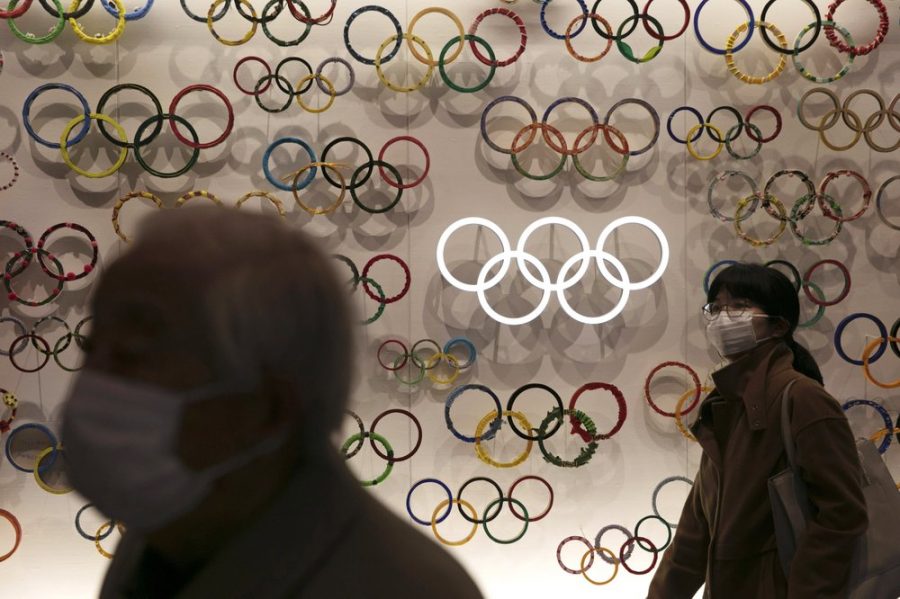In July 2020, hundreds of thousands of spectators will make their way to Tokyo to celebrate the greatest spectacle in sports: the Olympic Games. The process of hosting the Olympics is a massive undertaking that starts many years before the rest of the world even thinks about it. From the bidding and selection process to the infrastructure and budgeting, Japanese officials and workers have been working tirelessly to debut a memorable event come July.
It will not be hard to top their prior counterpart, as the Rio de Janeiro games in 2016 were plagued by problems including the Zika virus, a sub-par Olympic Village, water and air pollution and a lack of funding for proper infrastructure. Around this time in 2016, construction and infrastructure for the event were still incomplete, resulting in far-from-ideal tactics to finish the projects in time. The decision to hold the 2016 Olympics in a country that was not fully developed was a point of contention among Olympic officials, resulting in much higher standards going into 2020. Japan is far more developed than Brazil, and part of its case in receiving the bid to host the games was its highly-developed status and advanced economy.
Last year, rumors of corruption during the bidding process came to light, causing strife between Japan and the International Olympic Committee (IOC). This ultimately resulted in the resignation of the president of the Japanese Olympic Committee, Tsunekazu Takeda. Despite this obvious controversy, both Japan and the IOC have been full-steam-ahead in preparing for the games. This past July, the president of the IOC, Thomas Bach, told the media that Tokyo appears to be the most prepared a city has ever been for an Olympics.
In terms of finances, Tokyo has far exceeded its original estimated budget of $7 billion, with costs measuring out to roughly $13 billion at this point. Despite overspending the budget during preparations, local sponsorship revenue has surpassed expectations and should offset the excess costs. Additional support from the local Tokyo community has been demonstrated in the nearly 200,000 people who have already applied to volunteer during the games. Community support has been key in improving efficiency as they prepare for the event. Another unique component of Tokyo’s preparation has been the remodeling of many past Olympic venues (Tokyo previously hosted the games in 1964). In a nation with a strong cultural identity and acknowledgement to its history, this undertaking has strengthened support from citizens across the country.
Tokyo has been proactive in dealing with potential issues that may arise during the games, one being the possibility of dangerously high temperatures. Large investments have been made to assist both athletes and spectators, creating countermeasures like artificial shade and air-conditioned centers strategically placed throughout different venues. One of the most extreme measures to avoid heat-related issues has been to move the Olympic marathon event to Sapporo, a city roughly 500 miles north of Tokyo.
Post-Olympics, Tokyo aims to succeed in another area where Rio failed significantly. Many of the Rio Olympic venues were quickly abandoned and left to be looted and vandalized, as no clear plan was made for their use following the conclusion of the games. Tokyo, on the other hand, already has concrete plans to convert the Olympic Village into new apartments and condominiums.
The brand-new National Stadium that will be used for the opening and closing ceremonies, along with many other events, was designed with plans in mind for it to hold national sporting events after 2020. The new Tokyo Aquatics Center is set to be used as a spot for international aquatics competitions in the coming years.
While Tokyo’s preparations have gone according to plan thus far, the impact that the outbreak of the novel coronavirus may have on the games has become increasingly uncertain in recent weeks. Proposals including a new location and change in date have been up for debate as the world follows the news of the virus’s outbreak.
Athletes, spectators and fans around the world will continue to keep an eye on this story as July approaches, with fingers crossed that Tokyo will be able to hold a successful Olympic Games in 2020.









